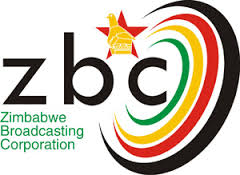ON 28 July, as part of the business programme of the Russia–Africa Economic and Humanitarian Forum, the panel discussion ‘Russia–Africa: Transferring the Best Educational Technologies for General, Vocational and Further Education’ will take place within the track entitled ‘The Humanitarian and Social Sphere: Working Together for a New Quality of Life’. The discussion will be moderated by Oksana Boyko, correspondent of the RT English language programme directorate.
The following participants are expected at the session: Mohamed Belhocine, Commissioner for Education, Science, Technology and Innovation within the African Union; Purificacion Bohari Lasaquero, Minister Delegate of Education, Science, Higher and Professional Education of the Republic of Equatorial Guinea; Denis Gribov, Deputy Minister of Education of the Russian Federation; Maxim Dreval, General Director, Russian society Znanie; Natalya Tretyak, General Director, Prosveshcheniye, and others.
In the current geopolitical paradigm, Russia and African countries are strategically expanding their interaction across the entire spectrum of relations, with special attention paid to the implementation of initiatives in education. Cooperation in this area has historical roots and is supported by a keen interest on the part of friendly states in studying the Russian language, sending students to Russian universities, and key projects in education. The promotion abroad of Russian general and secondary vocational education and its highly effective methods and practices opens up new opportunities for cooperation. In particular, the discussion will focus on how this experience will be useful for the implementation of educational policy in African countries and what Russian educational projects may be of interest to African partners.
“Scientist should become one of the most important professions. This does not mean that it should become accessible, or that it should seem that everyone can become a scientist. It is a difficult path. Not everyone will become a great scientist. Just as, in fact, not everyone could become a cosmonaut in the Soviet Union. But everyone wanted to. Everyone should want to become a scientist and realise how important it is for the country now and that the future depends on it,” noted Maxim Dreval, General Director, of Russian Society Znanie. roscongress.org/sessions/spief-2022-tochki-rosta-na-starte-desyatiletiya-nauki-i-tekhnologiy/discussion/
The panel discussion is scheduled for 14:00 in conference hall G3 (pavilion G).
The Roscongress Foundation is the organizer of the Second Russia–Africa Summit and Economic and Humanitarian Forum.




